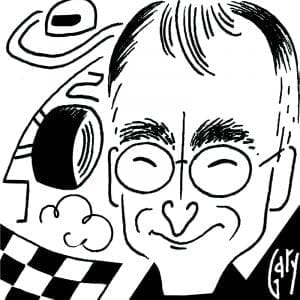Mark Hughes: Could Vettel be tempted by Aston Martin?
“Could Vettel be tempted by the potential of Aston Martin in 2021?”

Lewis Hamilton and Valtteri Bottas lend the team a balanced and harmonious line-up, and it has George Russell waiting in the wings. Meanwhile, Helmut Marko has stated that Red Bull simply couldn’t afford to pay a Vettel level of salary when it’s already paying the big bucks for Max Verstappen.
Ferrari decided not to renew with the driver it chose to replace Fernando Alonso with in 2015 because ultimately the partnership hasn’t worked. There was ambivalence within the team about his ultimate performance, Charles Leclerc was recruited to benchmark that, and did enough to become the chosen one.
“Leclerc became the chosen one, and there was nothing left for Vettel”
Hence there was nothing on the table for Vettel, whose problem was always that the guy who’d recruited him, Luca di Montezemolo, was gone by the time Vettel arrived. Getting the team working around him the way he needed wasn’t allowed by those basic dynamics. He didn’t arrive there sufficiently empowered.
Mattia Binotto inherited the situation when taking over as team boss last year, and although the dynamic between Vettel and him was much better than with Vettel and Binotto’s predecessor Maurizio Arrivabene, the sheer energy of Leclerc’s speed and ambition was already bleeding out the last vestiges of Vettel’s influence within the team. That vortex of energy was already spinning around the other guy. Binotto, a tough operator beneath the affable exterior, lost no time on going through the motions with Vettel and went about setting out his stall the way he wanted it. His resolution in doing this was doubtless aided by the on-track difficulties between Vettel and Leclerc last year, notably, Vettel not pulling aside as agreed in Russia, and their tyre-puncturing dice in Brazil. On those occasions, Vettel was cast as the villain, but even when it had been Leclerc going against instructions, at Monza during qualifying, he was still supported by the team after an initial admonishment that will have been brushed aside by the tough-skinned Leclerc. This was confirmation that Leclerc was seen by Ferrari as its future – and that future began as Leclerc took victory in front of the tifosi. It was a scene and a dynamic that Old Man Ferrari, self-styled ‘agitator of men’, would have loved.
Even as Binotto secured Leclerc to a long-term contract in December, discussions with Carlos Sainz Jr were already underway for the other seat. There was to be no negotiation with Vettel. “Things have changed,” said Binotto, “and we are looking towards a new cycle, and it seems that this vision, in terms of timing, did not coincide with Seb’s vision.” Vettel was recruited by di Montezemolo on the recommendation of Michael Schumacher, a driver that Vettel in many ways modelled himself on. He understood Schumacher’s way of integrating with a team, getting right into its very weave, and leading it. That was what Seb wished to emulate at Ferrari. But it was a different Ferrari to the one that Schumacher had integrated with. That one had been managed by Jean Todt and Ross Brawn. It sounds like a cliché to say Vettel-era Ferrari was a more Italian team, but that cultural difference of management is valid. Had di Montezemolo still been there, Vettel would have needed to have used his empowerment to get a different structure and way of working around him to extract the partnership’s full potential. With Schumacher, it already existed.
Vettel’s former Red Bull team-mate Mark Webber put it like this: “Sebastian has done his best with what he could to set the team up, and have it in a position to win a world championship in the last few years, but it hasn’t happened. So I think his confidence has been very much rattled with the lack of penetration that he was able to have with the Italian culture.”
So what does Vettel, 33 in July, do now? He did not gain those titles by accident and has years of potential performance in him yet. Well, he still has a season of racing to do this year, with Ferrari. A season in which he may not see the necessity to adhere too strongly to whatever team instructions might come his way. If the Ferrari is up to it, he might even fancy that there’s a world championship to be fought for. This is going to be a truly fascinating dynamic.
If the Ferrari can be made competitive, Vettel’s situation could parallel closely with Damon Hill’s at Williams in 1996, a driver the team is letting go at the end of the season fighting for the championship. Even when Damon succeeded, there was still no space at a top team for him the following year. Might Vettel be tempted by the potential of Aston Martin? Or choose to sit out 2021 to find a top seat for ’22?
These are volatile times and anything could happen.
